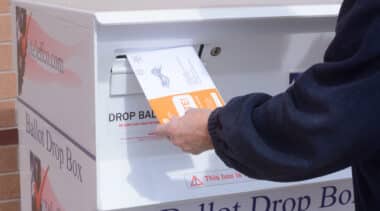Vittorio Nastasi is the director of criminal justice policy at Reason Foundation, where he provides research and technical assistance to lawmakers and stakeholders across the country.
His work focuses on removing barriers to employment, housing, and education for individuals with criminal records; curbing excessive criminal fines and fees; and reducing system overreach through policy research and legislative engagement. His research and commentary have appeared in The Wall Street Journal, Orange County Register, Atlanta Journal–Constitution, Palm Beach Post, and Tallahassee Democrat, among others.
Before joining Reason, he worked with the James Madison Institute and the DeVoe L. Moore Center, researching land-use regulation, occupational licensing, and criminal justice policy. Nastasi holds bachelor’s degrees in economics and political science and is currently a doctoral candidate at Florida State University’s Askew School of Public Administration and Policy. He is based in Tallahassee, Florida.
-
Annual Privatization Report 2025: Housing
Enabling more housing construction is essential to addressing housing affordability challenges across the country.
-
Pennsylvania stalls on prison ID reform where other states found bipartisan consensus
Pennsylvania has twice rejected legislation to provide identification documents to people leaving prison, even as other states have embraced similar reforms.
-
Could clearance rates be key to addressing criminal justice failures?
Clearance rates are the closest metric we have to evaluating how well the criminal justice system does at catching people who commit crimes.
-
President Trump’s executive orders threaten cities and states that allow cashless bail
Targeted and carefully designed bail reform can protect public safety and uphold constitutional values. The administration’s crackdown is neither.
-
Michigan’s bipartisan legislative package provides necessary improvements to policing
The Police Practices Standardization, Transparency, and Trust (S.T.A.T.) package would limit no-knock warrants and provide other safeguards.
-
Georgia builds on reforms to provide released inmates with identification documents
Senate Bill 147 represents a meaningful step toward reducing recidivism and promoting public safety in Georgia.
-
Virginia adopts reforms to provide released prisoners with identification documents
By codifying a specific process for providing identification, House Bill 2221 reduces administrative barriers to reentry.
-
Missouri bills would protect free expression and artistic freedom
Senate Bill 661 and House Bill 1389 would create uniform standards for the admission of song lyrics and other forms of artistic expression into evidence.
-
Victim-offender dialogues may help victims heal
Research evidence suggests that victim-offender dialogue can have positive impacts on victims’ healing and may even have positive effects against recidivism.
-
Virginia’s Senate Bill 826 would reduce uncertainty associated with occupational licensing approvals
Senate Bill 826 would bring Virginia’s licensing policies in line with the 25 other states that have adopted predetermination processes.
-
Arizona Proposition 140 would implement a single primary for all candidates
Currently, Arizona currently has a semi-open primary system whereby only registered party members and unaffiliated voters are allowed to participate in each party’s primary elections.
-
Colorado Proposition 131 would implement top-four ranked-choice voting
Colorado currently has a semi-open primary system where only registered party members and unaffiliated voters are allowed to participate in each party’s primary elections.
-
Alaska Ballot Measure 2 would repeal top-four ranked-choice voting
Alaska Ballot Measure 2 would return Alaska to partisan primaries and a single-choice, plurality-wins vote system.
-
Arizona Proposition 311 would use criminal convictions to fund first responder death benefits
Proposition 311 would impose a $20 fee on every criminal conviction to fund a lump-sum $250,000 benefit paid to the spouse or children of first responders killed in the line of duty.
-
California Proposition 6 would end forced work in prisons
California Proposition 6 would change the state constitution to abolish forcing prisoners to work.
-
Idaho Proposition 1 would allow top-four ranked choice voting
The Idaho Top-Four Ranked-Choice Voting Initiative would also change state primary elections from a closed system.
-
Nevada Question 3 would allow top-five ranked choice voting
Under the initiative, the top five candidates overall would advance to the general election, regardless of party affiliation.


















